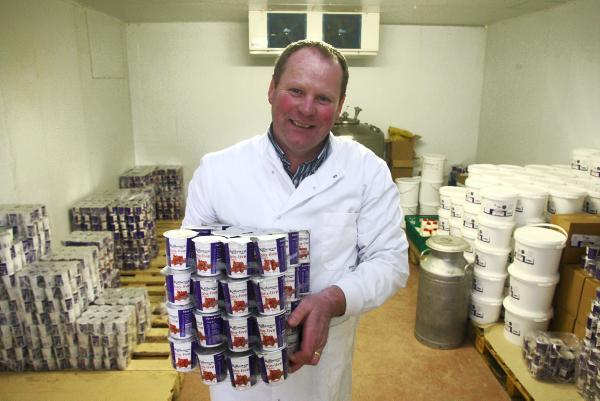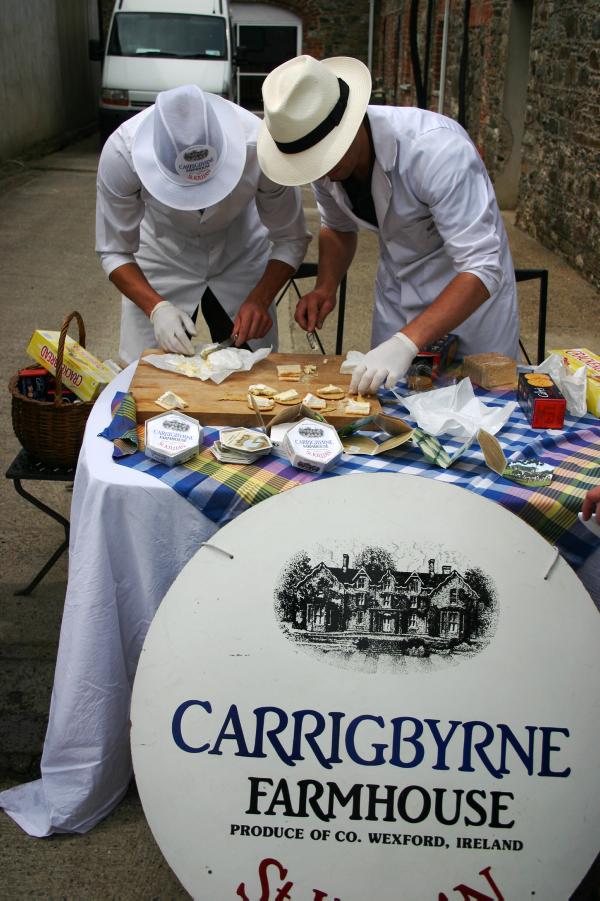Crowd lending is a new form of finance for small businesses in Ireland. It has taken off in the US and Britain. Given the difficulties small businesses have had getting access to working capital, it was only a matter of time before it arrived here.
For businesses, it provides an alternative source of finance that is proving simpler to access than from traditional banks. With bank deposit interest rates at all-time lows, it offers lenders an opportunity to get higher returns, albeit with higher risks than deposits.
Linked Finance, first out of the blocks in providing the platform, has facilitated 80 small businesses to borrow over €1.8m from nearly 6,000 individual, small lenders since it started
“So far, we have facilitated average loans of €23,000 to 80 businesses. On average, 160 lenders have been involved in each loan,” said Conor McAleese, Linked Finance. For them it’s all about the crowd.
“We want a lot of lenders putting in small amounts in each business. Lenders can put in €50 to €2,000 and they bid on the interest rate they are willing to lend at.” At the end of a two-week process, the lowest bids to provide the funds are offered to the company who can then accept the loan.
Varied rates
The rates have varied from as low as 6.3% to as high as 12.7%, depending on the business and the market it is in.
“It took businesses a fair bit of convincing at the start to look for credit this way. As more businesses are successful, the interest is growing,” said Conor.
He found that it especially suits small food businesses that are finding it difficult to get credit for working capital or purchasing machinery.
“We vet the businesses that want to raise credit. They have to be two years trading and sole traders have to have a turnover of €80,000 and limited companies have to have €100,000.
“We do a credit check and ensure that there is a certain level of financial information shown to lenders to make a decision,” he added. The company directors are asked to give personal guarantees and the majority do.
All but two businesses that looked for money through Linked Finance haven’t got it so far. All the rest have been oversubscribed.
“In fairness, the two didn’t really engage in the process. There is a question and answer section and, if the business asking for money doesn’t answer any questions, lenders are rightly slow to bid on the loan,” Conor told me.
Conor has found that companies that employ their own social media campaign have tended to perform better.
Linked Finance does not guarantee the money, so there is a risk of default depending on the business.
“Internationally, the arrears for this type of lending have tended to be a lot less than banks. There is a greater motivation to pay back crowd lending loans as the lenders can create havoc with your reputation on social media, etc., and the businesses know this,” said Conor.
Linked Finance aims to grow the business and are actively looking for companies who want finance.
“Currently, businesses can borrow between €5,000 and €50,000 for up to three years. We hope to expand the amount and the term as the concept grows,” said Conor. “Companies are charged a €70 application fee and then we deduct a 2.5% completion fee, but only if the loan is accepted by the company. Companies can repay a loan early at any time at no extra cost, once they pay the interest accrued until the end of that month.
“This is considerably cheaper than the normal early settlement terms of fixed-rate loans offered by banks. The lender is charged 0.1% a month or 1.2% a year on the funds they have invested in companies.
“In Britain, the government is lending though crowd funding to support SMEs and we would love to see that happen here,” Conor said. “We would also like to see lenders get a tax exemption on the first €5,000 of interest they get through crowd lending. It would be another way the government could help small businesses,” he said.
Kilowen Youghurt
“We are just about to do our second round of funding though Linked Finance. We hope to get it at a lower interest rate than the first,” Nicholas Dunne of Kilowen Youghurt, Enniscorthy, Co Wexford, told me.
It raised €30,000 six months ago to purchase machinery it needed to expand the business. “In the current climate, it is very difficult to get finance, especially for food production machinery. It just doesn’t fit into a typical box for bank loans or even hire purchase or lease finance,” said Nicholas.
The company was very apprehensive initially as it was something completely new and different. “We needed the money and knew that if we went to the bank, the first thing they would ask for is extra security and we are slow about giving up the farm assets for this,” said Nicholas.
“We were vetted before being allowed up on the site. We had to go through a credit bureau check and provide financial information, a summary of which is put up on the site,” he said.
The business is allowed to pick a targeted interest rate for the loan. “We were very optimistic and targeted a 6% interest rate. When the process started, the interest rate was 11% as people tend to put high bids at first but, as the bidding went on over the two weeks, the loan was oversubscribed and we ended up getting the loan at 9.4% interest,” said Nicholas.
The loan interest is the average of the lowest bids by lenders for the money. “It was probably about 1.5% above commercial rates but it was a lot simpler to get,” said Nicholas
“We have since become lenders on the site, lending €100 to €200 to businesses and getting a return of 11% or 12% in some cases,” he added.
The company now sees crowd lending as part of a portfolio for finance that allows it to be less dependant on the bank.
“We are looking to raise another €20,000 for another machine. Since we have been repaying the last loan, we hope the track record will see us get a lower interest rate,” he added.
One additional benefit was the publicity. When Kilowen was in a show in Dublin recently, he had people coming up to tell him they had invested in the loan.
“Of course, they bought our product as it will only help to ensure they get their money back,” Nicholas joked.
Carrigbyrne Cheese
“I intend to pay the money off well before the three years are up,” Patrick Berridge of the well-established Carrigbyrne Cheese in Wexford told me. “We had bought a wrapping machine from France for €56,000 and had got LEADER funding. We needed the matching funding but the bank did not think we had enough repayment capacity at the time,” he said.
“Linked Finance were a lot easier to deal with than the bank and there were a lot less strings attached. I gave them a personal guarantee and had to provide information about my business,” said Patrick.
Patrick looked for €35,000 and ended up getting it at a rate of 8.8%. “It is expensive money, so the project has to be watertight and be a benefit to your business. I have got cheaper funds since, but they were not available at the time,” he added.
The auction continues for 14 days and, while it is online, you have to wait. “They encourage you to get friends and family to bid, but I think that is just to get more activity on the site,” he said. They take their 2.5% commission off the total of the loan before they pay it out and the money is direct debited out of the business account each month.
Castlemine Farm
“We looked for €6,000 after we were contacted by Linked Finance. It was more to test the process than anything else,” said Brendan Allen of Castlemine Farm, Roscommon.
They wanted the money for equipment for their new range of meat pies and also to do some branding work. “The process of getting on the site was easy. You gave them your balance sheet and projections and they put a summary on the site for lenders to look at. It was not much more than what people could get directly from the company registration office,” said Brendan.
He was wary of some lenders contacting him directly but that didn’t happen. “In the end, the loan was 177% oversubscribed. I had budgeted on a rate of 8% and it ended up being 8.3% to be paid back over 12 months,” he said.
The equipment is definitely improving efficiency and cashflow for the business, so it is paying for itself.
“I will go back for more money if I could get the interest rate similar to the bank. It is certainly a simpler and quicker way of getting short-term finance.
“There is €80bn on deposit and by offering higher interest rates, albeit with some risk, it could become a real alternative for lenders and small businesses like ours,” said Brendan.







SHARING OPTIONS